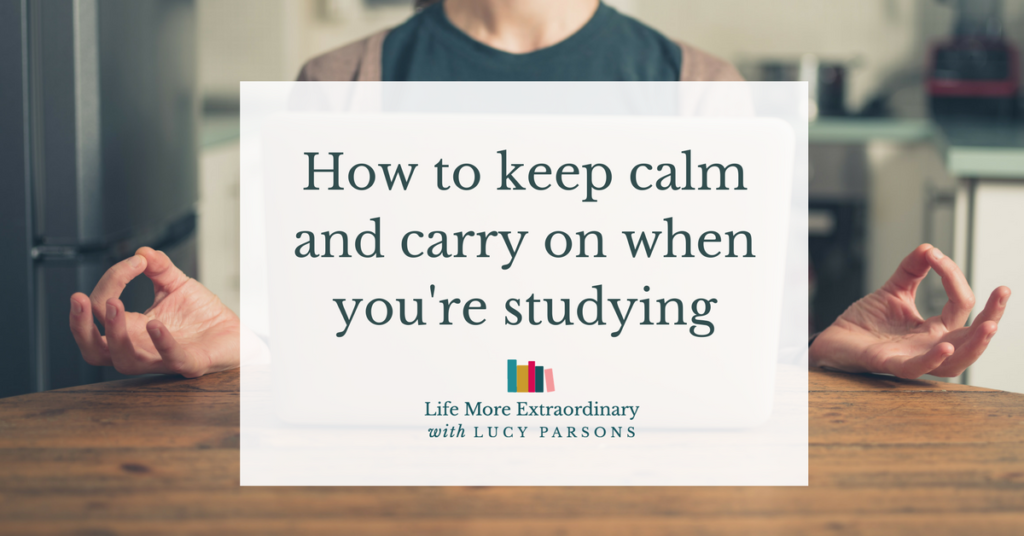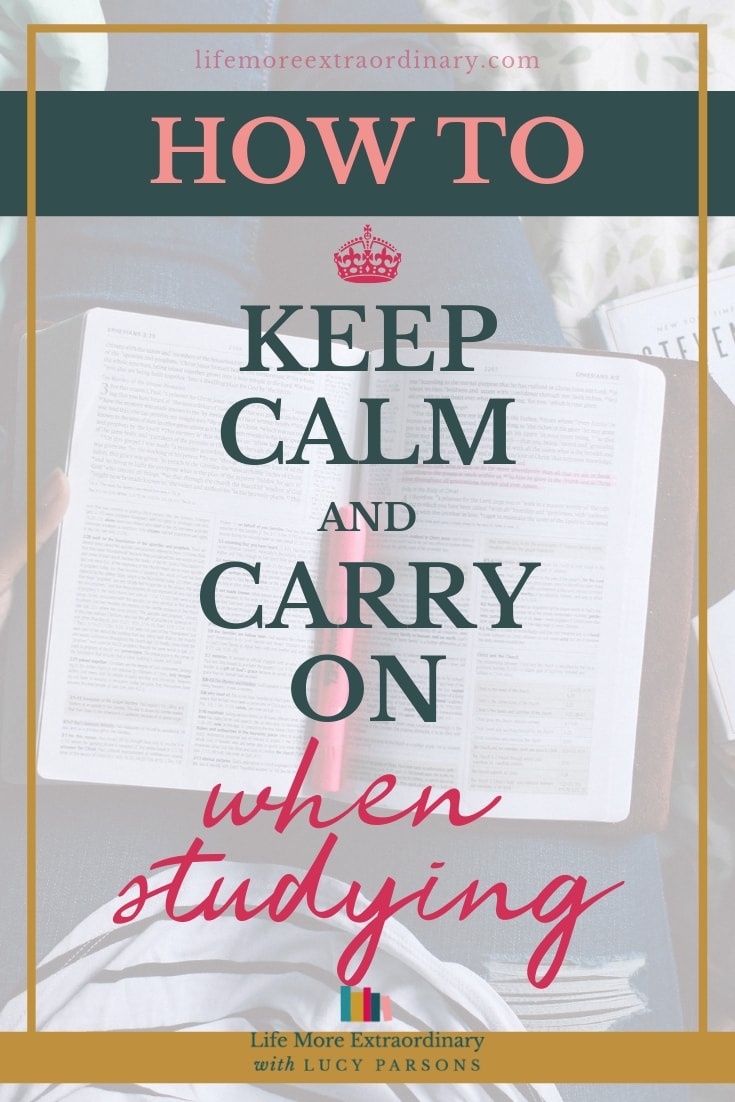How to keep calm and carry on when you’re studying

Are you finding yourself stressed out, over-whelmed and anxious during revision season? Do you find it difficult to concentrate and focus? Well, today I'm offering you a new solution. I've been meditating daily for nearly two years and it makes a massive difference to my mood and my patience. It also calms me down when I'm stressed and helps me to put things in perspective. That's why I asked Yvette, from Life's Little Lab, to write us an article about how meditation can help with your studies. Enjoy, and try to use Yvette's free meditation in your study breaks at least once per day during exam season.
Over to Yvette…
Optimising your study time so that you’re working smarter not harder is easier than you might think. From a neuroscience perspective, the best conditions for learning involve finding your sweet spot, that’s somewhere in between feeling ‘meh!’ (low level of stress or boredom) and ‘crash and burn’ (high level of stress or fear). Think of it like the goldilocks of learning – you need to have just the right amount of stress (challenge) to feel alert and engaged in learning.
Find meaning in your study
Know your ‘why’! Knowing your why will help keep you motivated and committed to your study time.
- What are you working towards?
- What do you want to achieve?
- What is the change you’re hoping to see come about through studying?
Write down your ‘why’ and put it somewhere you can see when you’re studying. Look at it to wake you up if you start to feel bored, it will help keep you inspired and on track.
If you're struggling to identify your ‘why' there are exercises to help you in Chapter 1 of my book, The Ten Step Guide to Acing Every Exam You Ever Take.
Calm your mind and silence your ‘inner-critic’
While a little bit of stress is healthy, if you start to find yourself feeling upset, fearful or overwhelmed by the thought of studying, creating a regular meditation practice could be the answer to get you humming along.
Meditation works to get you into a space of relaxation by calming your mind. It can also help quiet your ‘inner-critic’ (that pesky, judgmental voice inside your head that may be telling you you’re not doing enough, not good enough, not smart enough). Your ‘inner critic’ will try to sabotage your greatest efforts and has the power to impact your confidence, making it difficult to move forward.
Meditation will help you get in touch with that part of you that believes in your abilities so you can nurture a healthy self-esteem and boost your self-confidence.
Meditation can enhance focus and concentration.
Neurobiological studies have shown that regular meditation enhances the ‘executive functioning’ of our brain. Meditation increases the performance of our working memory – one of the main drivers of intelligence. Our working memory is a vital part of studying.
Benefits of meditation include:
- improved immune function
- improved memory and attention
- more compassion
- lower blood pressure and heart rate
- lower anxiety
- lower depression
Different types of meditation
You are unique and so are the many types of meditations available but they usually fall under two main categories – active (solely focusing your mind on an activity you are doing eg. yoga/walking) and passive (being completely still and relaxed).
Experiment to find a meditation that suits you and your learning style best.
- Do you like sitting in silence while meditating?
- Do you like meditating to music?
- Do you prefer listening to a meditation when someone is guiding you through the process?
- Do you like walking while meditating?
New to meditation? Where to start:
Go to www.lifeslittlelab.com to download your free guided meditation.
Yvette Vuaran is a professional life coach and founder of Life’s Little Lab. Based in central London, she specialises in identity, emotional intelligence and creative thinking.

